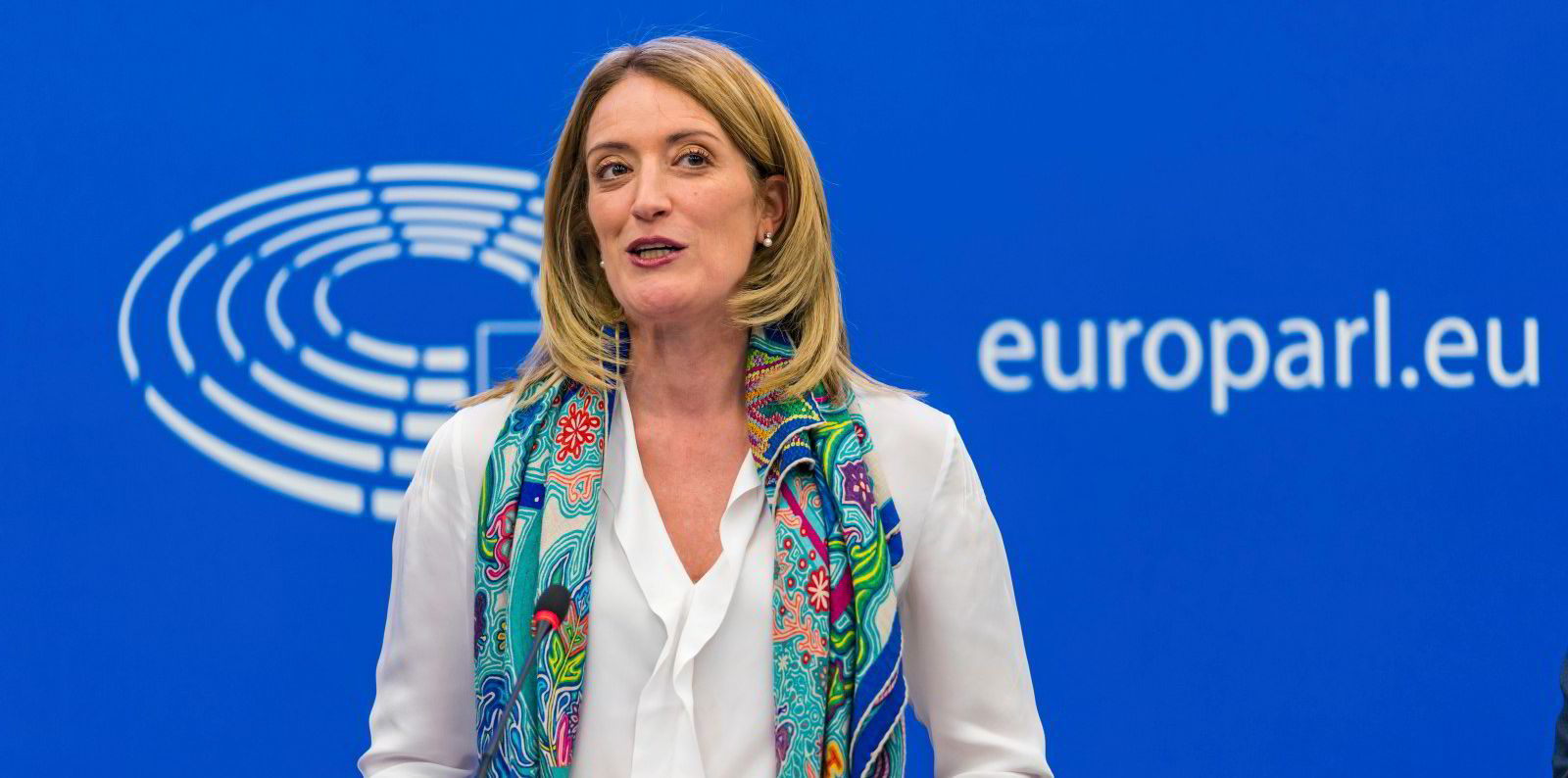Shipping and environmental groups welcomed recommendations by the European Commission on Tuesday to set a new 2040 emissions target aimed at reaching climate neutrality a decade later.
The move came on the same day that the two other key European Union institutions agreed on legislation to spur development in the green tech sector in a bid to reach its 2030 climate goals.
The commission recommended a 90% greenhouse gas emissions cut by 2040, compared to 1990 levels, on the way to reaching its climate-neutral goal a decade later.

The European Community Shipowners’ Associations said it welcomes the 2040 climate target for its commitment to address the barriers to adopting e-fuels, biofuels and other low-emissions energy sources.
The ECSA, led by secretary general Sortiris Raptis, said the target gives shipping priority access to these fuels over industries that have other options.
“It’s the first time we see such a strong commitment to give shipping priority access to low and zero-emission fuels such as advanced biofuels and e-fuels,” he said.
“The price gap is immense, as the cost of sustainable fuels can be four times higher compared to fuels currently used in shipping. We look forward to working with the commission to translate this commitment into immediate action.”
And towards that end, he said the shipowners’ group welcomes working with Brussels to leverage revenues earmarked from the EU’s Emissions Trading System.
The organisation said the commission acknowledged that increased costs of sustainable fuels are a key factor in keeping shipping competitive.
The ECSA gave its thumbs up to the commission’s plans to consider differentiated targets for shipping that line up with the International Maritime Organization’s global goals.
However, the group said it plans to analyse the scenarios examined by the commission to reach the 2040 target.

Green group Transport & Environment said the proposal gives shipping and other industries investment certainty on clean technology.
“The EU’s plan to reduce its emissions by 90% by 2040 marks a historic day for the climate,” the group said.
But the group pointed out that the new goals made no mention of phasing out oil and gas, despite the agreement at the United Nations’ COP28 climate conference in December to transition away from fossil fuels.
The group said the inclusion of shipping emissions in the target is a welcome step forward.
But Transport & Environment urged the new commissioners who will take office after the June elections to follow up with policies to ensure the decarbonisation of shipping.
Industrial policy model
Sofie Defour, Transport & Environment’s climate director, said the EU action showed the world that climate ambition can be turned into a “powerful” industrial policy.
“Industry players at home and outside of Europe can turn to the EU for production and sales of green tech, as they can be assured of a growing market and predictable demand,” she said.
“But this headline goal will fall flat if it doesn’t come hand in hand with a phase-out of fossil fuels and new laws cracking down on the oil majors. Europe will desperately try to meet a 2040 goal whilst still feeding on fossil fuels. But you simply can’t outrun a bad diet.”
Also on Tuesday, the European Parliament struck a preliminary deal with the European Council on the Net-Zero Industry Act, which sets a 2030 goal of producing 40% of the climate technology needed to reach the bloc’s goals.
Jo Brouns, Flemish minister for economy, innovation, work, social economy and agriculture, said the new law is a key step in creating the ecosystem needed to manufacture clean technologies.
“Europe launched a pathway towards a cleaner and sustainable future for the European industry,” he said.
“Now the time is ripe for Europe to take back the lead on the global scene for clean technologies and to build a competitive, green and job-creating industrial sector.”
But the European Environmental Bureau, a coalition of green groups, criticised the legislation for not focusing on cost-effective and immediately deployable solutions, such as renewable hydrogen for targeted sectors and batteries.
The group was critical that the law put those technologies in the same basket as carbon capture and nuclear energy.
“Putting costly, unproven technologies at the same level as proven solutions derails the original intentions behind the Net-Zero Industry Act,” said Riccardo Nigro, the group’s senior policy officer for the zero-pollution industry.
“This misguided approach jeopardises both environmental and strategic autonomy goals and diverts funds from essential clean technologies.”




